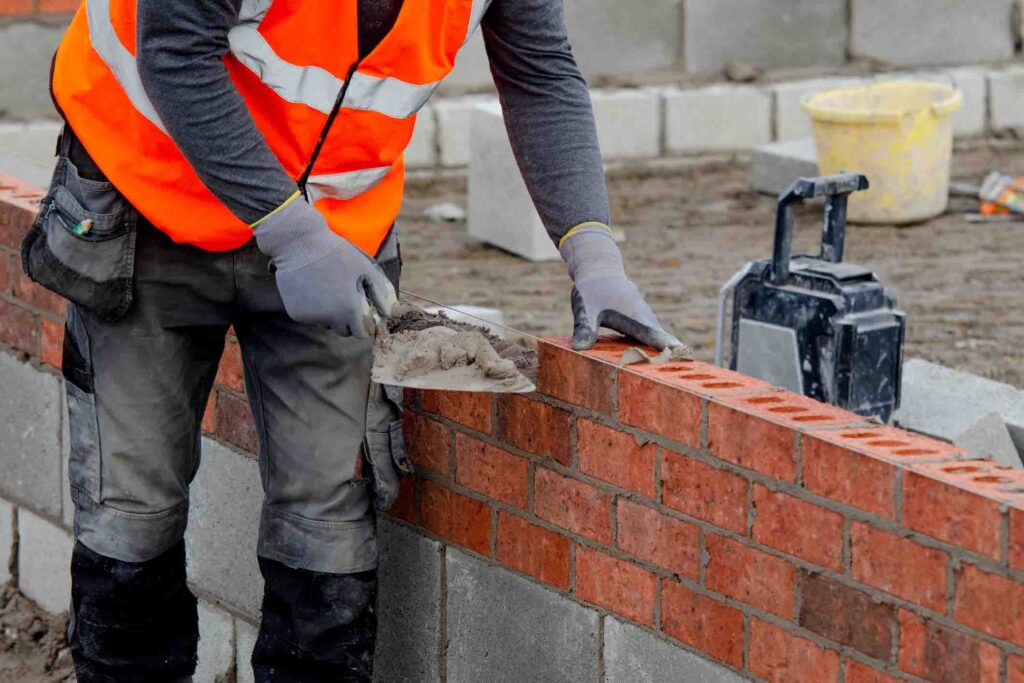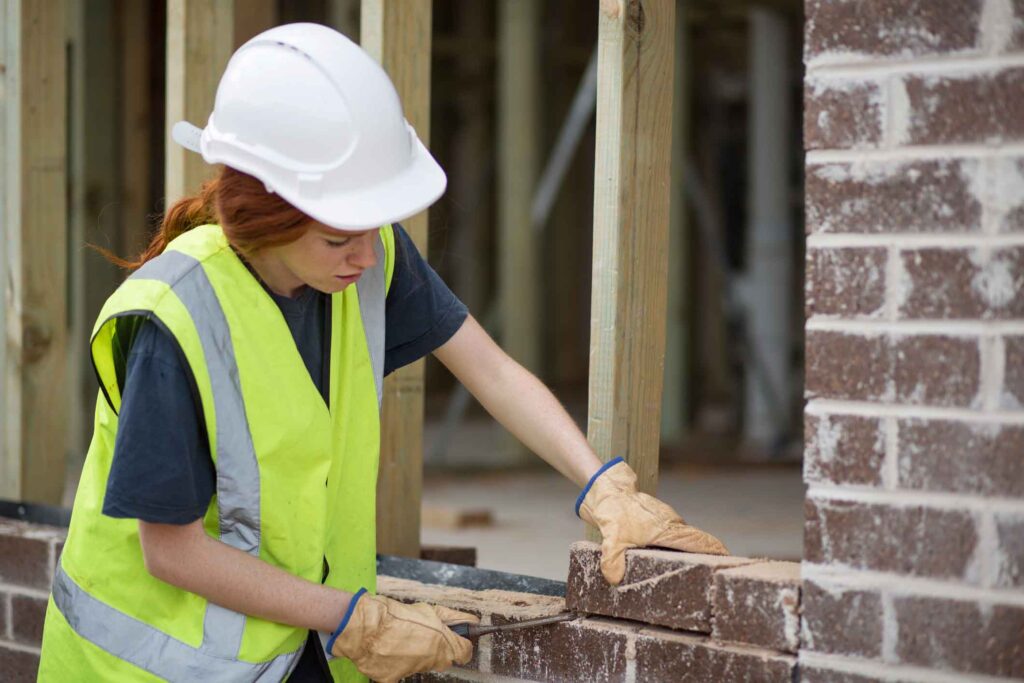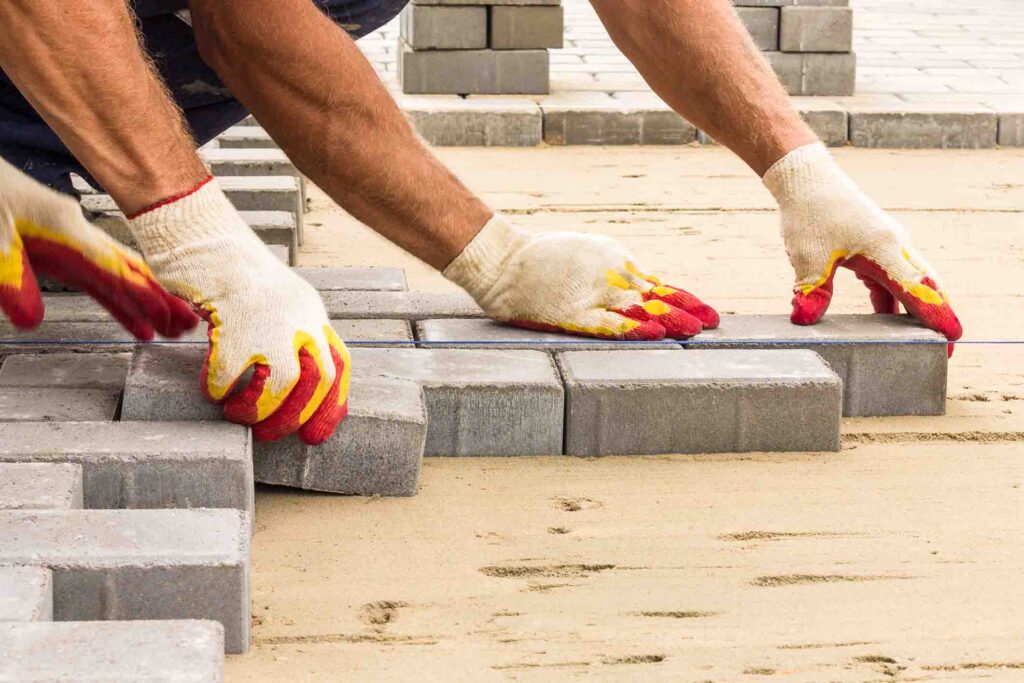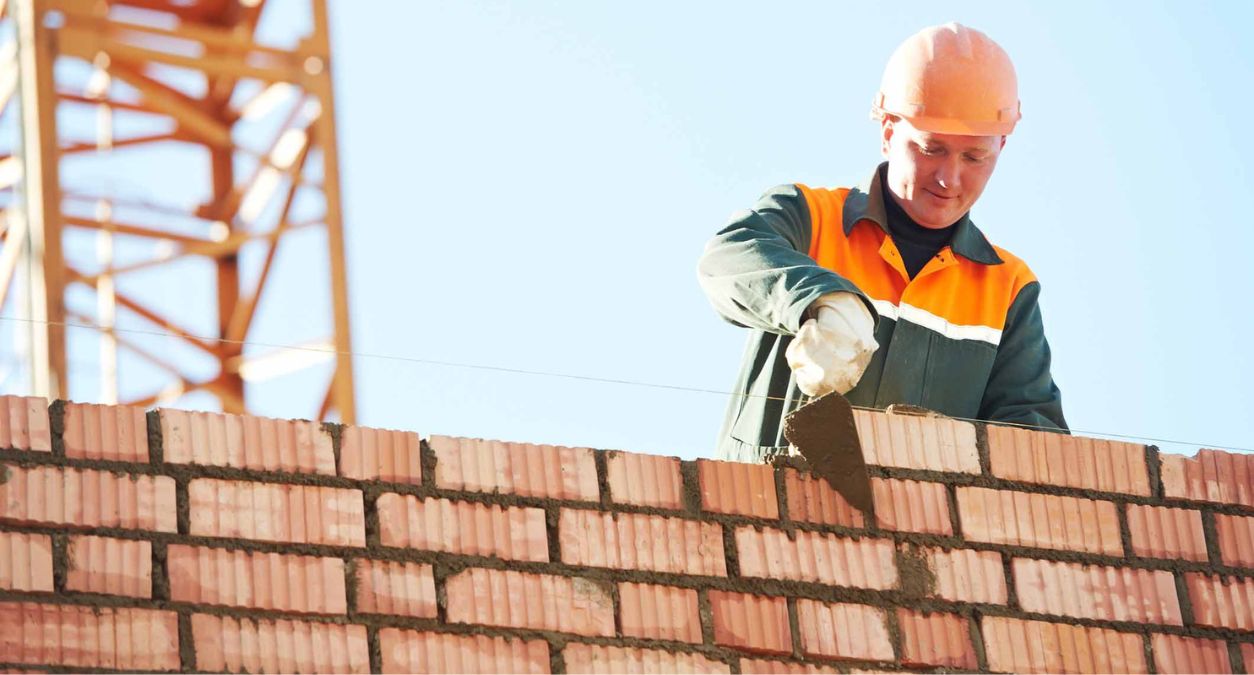Table of contents
Table of contents
Table of contents
Contributors
My main focus is managing the blog and product content for the Protectivity website ensuring everything aligns wi...
In the construction industry, bricklayers contribute not only to the structural integrity of buildings but also to the aesthetic appeal that defines architectural landscapes.
When it comes to understanding the value of the profession and how much bricklayers make, there are various factors to take into account. These include the different career stages, the potential for entrepreneurial growth, the financial landscape, operational costs and business considerations.
In this in-depth guide around how much bricklayers get paid, we’ll help to give current and prospective bricklayers a comprehensive understanding of the profession. This can empower you to navigate the industry with expertise and financial acumen.
What value do bricklayers offer to clients?
Before looking at how much bricklayers earn in the UK, it’s helpful to look at the role they play in the construction industry. Their primary value lies in their ability to skilfully lay bricks, blocks, and other masonry materials, for the creation of sturdy and durable structures. They are indispensable when it comes to transforming designs into structurally sound, aesthetically pleasing constructions.
Beyond the manual labour, bricklayers interpret and implement architectural plans, collaborating with other construction professionals to bring a vision to life. Their precision is essential in achieving a level of craftsmanship that meets or exceeds industry standards, enhancing the overall quality and longevity of a construction project.
Additionally, bricklayers contribute to the energy efficiency and safety of buildings through their knowledge of proper insulation techniques and adherence to building codes. Their ability to work efficiently and adhere to project timelines adds significant value to clients who want their construction projects to be completed by a certain deadline.
How much do bricklayers get paid on average in the UK?

In the UK, bricklayers’ earnings can vary based on factors such as experience, location, and the type of projects they are involved in. On average, bricklayers can earn around £15 to £25 per hour. For a standard working day, which is typically eight hours, this translates to £120 to £200 per day. On a weekly basis, a bricklayer’s earnings can range from £600 to £1,000, while monthly earnings may be around £2,400 to £4,000.
Annually, a bricklayer’s income can be estimated at £28,800 to £48,000 on average. These figures will usually be lower for apprentices, while skilled and experienced bricklayers may command higher rates, especially if they specialise in certain areas or work on high-profile projects.
In terms of how much money bricklayers make per brick, this isn’t an exact science as they usually charge per hour or per project. However, if estimating labour costs per 1,000 bricks, it can range from £350 to £700 or more, depending on factors like experience, location, and project complexity. Actual rates for how much bricklayers charge per 1,000 bricks may vary.
How much can bricklayers get paid at different stages of their career?
Bricklayers can experience a progressive increase in earnings as they advance in their careers. Entry-level or apprentice bricklayers may start with lower hourly rates, typically in the £10 to £15 range. As they gain experience and proficiency, they can move into more advanced positions, earning higher wages.
Mid-career bricklayers, with several years of experience, may command hourly rates of £15 to £20 or more. Senior or highly skilled bricklayers, often with a decade or more of experience, can earn upwards of £38 per hour or negotiate project-based rates that are significantly higher.
Career advancement may also involve taking on supervisory roles, such as becoming a foreman or project manager, which can lead to salary-based compensation and additional benefits.
Can bricklayers make £100,000?
While it is uncommon for the majority of bricklayers to reach an annual income of £100,000 through standard hourly or daily wages, it is not impossible. Achieving such a substantial income would require a combination of factors, including extensive experience, specialisation in high-demand areas, and potentially taking on managerial or entrepreneurial roles within the construction industry.
People who secure contracts for large-scale, high-value projects, or establish successful bricklaying businesses, have the potential to surpass the six-figure mark. Additionally, bricklayers who diversify their skills, such as gaining expertise in related trades or pursuing advanced certifications, may increase their earning potential.
How much can a self-employed bricklayer earn?

Self-employed bricklayers have the opportunity to earn higher incomes compared to those working as employees. This is because of the flexibility to set their rates and take on multiple projects simultaneously. The hourly rates for self-employed bricklayers can range from £20 to £40 or more, or somewhere around £56,000 per year. This depends on their skill level, experience, and the nature of the projects they take on.
Self-employed bricklayers need to consider factors such as overhead costs, taxes, and irregular income patterns when determining their rates. Despite potential fluctuations, successful self-employed bricklayers can achieve competitive annual earnings if they consistently secure projects and manage their finances effectively.
What are the costs and expenses for bricklayer businesses?
Running a bricklaying business involves various costs and expenses that impact overall profitability. Key expenditures include:
- Materials: Bricklayers need to purchase bricks, mortar, and other masonry supplies for each project.
- Tools and equipment: Investing in quality tools and equipment is essential for efficiency and maintaining a professional standard of work.
- Transportation: Bricklayers may need a reliable vehicle for transporting materials and equipment to and from job sites.
- Insurance: Liability insurance and, in some cases, health and safety insurance, are crucial for protecting the business and its assets. Don’t forget tools insurance to ensure your equipment is covered too.
- Training and certification: Continuous professional development and certification may incur costs but they can provide a good return on investment and contribute to staying competitive in the industry.
- Marketing: Promoting a bricklaying business is essential for attracting clients. Costs in this area might include paid online advertising, networking events, radio adverts, website subscriptions, and other marketing strategies.
- Overheads: This includes office space, utilities, and administrative expenses, if the business has a physical location.
Understanding and managing these costs are vital for maintaining a profitable bricklaying business.
How do I get started as a bricklayer?
Getting started as a bricklayer typically involves the following steps:
- Education and training: Enrol in a bricklaying apprenticeship or training programme to acquire the necessary skills and knowledge.
- Gain experience: Work as an apprentice or entry-level bricklayer to gain hands-on experience under the guidance of experienced professionals.
- Obtain a certification: Consider studying for relevant certifications to enhance your credentials and competitiveness in the industry.
- Build a portfolio: Document your completed projects and create a portfolio showcasing your skills and craftsmanship.
- Network: Establish connections within the construction industry, including contractors, builders, and other professionals.
Entering the field with a solid foundation of skills, experience, and networking can pave the way for a successful career as a bricklayer.
How can bricklayers increase their earnings?

Bricklayers can strategically enhance their earnings through a combination of skill development, specialisation, networking, and entrepreneurial initiatives. Firstly, continuous professional development is essential. Staying informed on the latest industry techniques, materials, and technologies ensures that bricklayers remain competitive and can command higher rates for their expertise.
Specialisation within the field offers a lucrative way of increasing rates. Focusing on niche areas such as restoration and conservation, sustainable construction, or decorative masonry allows bricklayers to cater to specific client requests, meaning they’ll be happy to pay more.
Networking plays a pivotal role in expanding opportunities. Building strong relationships with other construction professionals can lead to referrals and premium projects. Also consider attending more general professional networking events, where you may gain referrals from people in other industries or even find clients directly. Positive client relationships and a good reputation for quality work contribute to a steady stream of work.
Entrepreneurship is another avenue for boosting earnings. Establishing and managing a bricklaying business allows owners to set their rates, take on larger projects, and potentially expand their services. Successful entrepreneurship requires effective marketing, project management, and financial acumen.
Finally, diversifying skill sets by obtaining certifications in related trades or advanced masonry techniques broadens the scope of services a bricklayer can offer. This versatility positions them as invaluable assets on complex projects, commanding higher compensation for their varied expertise.
What can bricklayers specialise in to earn more?
Bricklayers can specialise in various areas to enhance their earning potential:
- Restoration and conservation: Specialising in restoring and conserving historical or heritage structures can be lucrative, as it requires a unique skill set and attention to detail.
- Sustainable construction: With an increasing emphasis on environmentally friendly construction practices, bricklayers can focus on sustainable building methods and materials.
- Decorative masonry: Mastering intricate designs and decorative elements can attract clients hiring for bespoke projects.
- Specialised brickwork techniques: Learning and perfecting advanced techniques, such as arch construction, herringbone patterns, or complex brick bonds, can set a bricklayer apart from the competition.
Get Bricklayers Insurance with Protectivity
The best way to add value to your business, and protect your income, is to take out the relevant insurance.
Protectivity’s bricklayers insurance covers most building-related trades. Choose the type of cover that best meets the needs of your business, with a range of benefits. You can opt for public liability with up to £5m worth of cover, employers’ liability, products liability and more.
Find out more about our tradesman insurance and get a quote online.
Get Bricklayers Insurance from Protectivity
*Disclaimer – This blog has been created as general information and should not be taken as advice. Make sure you have the correct level of insurance for your requirements and always review policy documentation. Information is factually accurate at the time of publishing but may have become out of date.
Last updated by

















